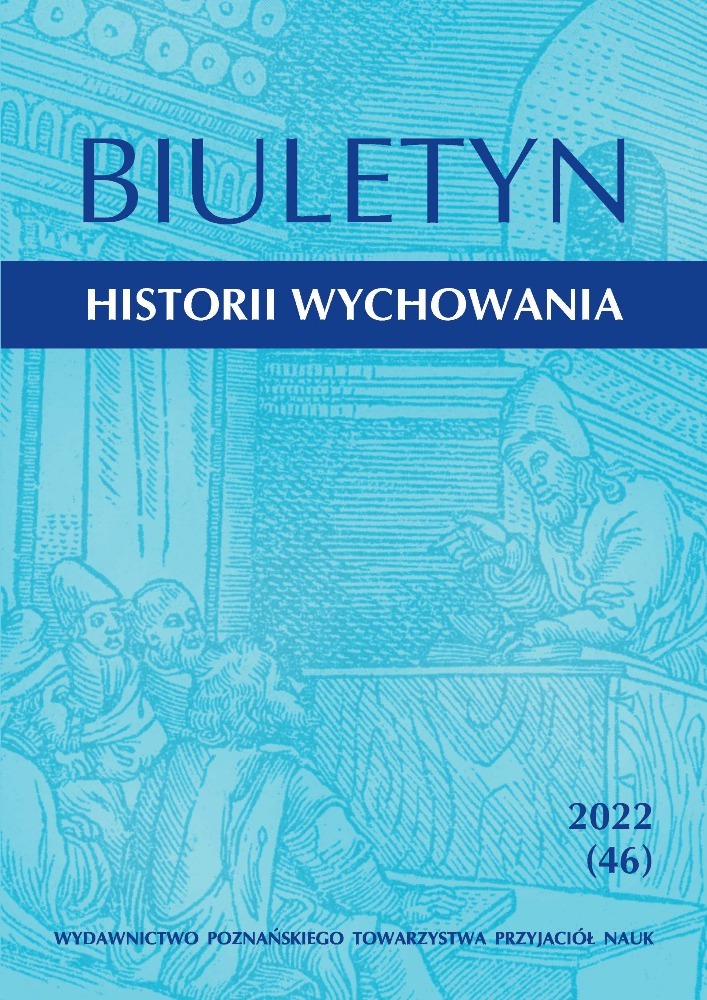Development of Polish-Portuguese bilingualism in Brazil
DOI:
https://doi.org/10.14746/bhw.2022.46.10Słowa kluczowe:
bilingualism, Polish, Portuguese, Brazil, historyAbstrakt
The aim of the article is to show the Polish-Brazilian evolution of bilingualism throughout ages. his paper shows different definitions and types of bilingualism, taking into consideration a comparison between the Polish and Portuguese language. Furthermore, I present a review of 150 years of Polish citizens’ history in Brazil. It presents their difficulties and the approach of the Brazilian government from the 19th to the 20th century. The most significant subject are Polish schools and organizations. Their history shows how the command of Polish and Portuguese changed throughout ages. There were different conditions, affecting the command of languages in the Polish Diaspora, such as the familial approach or access to Polish culture. I also mention which organizations and people had the biggest impact on Polish citizens in Brazil. I also describe the existing attitude to both cultures and languages in Polish communities. Apart from that, I try to understand the identity and acquaintance of Polish culture nowadays and show actions as a resultof which Polish language and history are promoted nowadays.
Pobrania
Bibliografia
Bloomfield L., Language, Chicago 1935.
Budakowska E., Em busca da etnicidade: movimento da BRASPOL no Brasil – interpretação con- temporânea, Warszawa 2007.
De Groot M.B., Language and Cognition in Bilinguals and Multilinguals, New York 2011. Głuchowski K., Materiały do problemu osadnictwa polskiego w Brazylii, Warszawa 1927. Kaczmarek A., Emigracja polska w Brazylii: 100 lat osadnictwa, Warszawa 1971.
Lepecki M., Opis stanu Espirito Santo (Brazylja), Warszawa 1931. Lepecki M., Parana i Polacy, Warszawa 1962.
Macnamara J., The bilingual’s linguistic performance, Chicago 1967. DOI: https://doi.org/10.1111/j.1540-4560.1967.tb00576.x
Malczewski Z., Polonii brazylijskiej obraz własny. Zapiski emigranta (2007–2010), Warszawa 2010. Merriam Ch., Merriam G., Merriam-Webster’s Collegiate Dictionary, Springfield 2003.
Miodunka W., Bilingwizm polsko-portugalski w Brazylii, Kraków 2003.
Pabis N.A., Edukacja i kultura: szkoły polskich imigrantów na południu stanu Parana, in: Polacy i ich potomkowie w Ameryce Łacińskiej, Gdynia 2017.
Pluta A., Droga do Rio, Warszawa 2017.
Stąpor I., Słownictwo polonijne w Brazylii jako rezultat kontaktów językowych polsko-portugal- skich (na przykładzie “Gazety Polskiej” w Brazylii), in: Polônia e Brasil – mais próximo do que parece, Warszawa 2020.
Weinreich U ., Languages in contact, finding and problems, New York 1953.
Tambor J., Po polsku, po brazylijsku i po portugalsku – o świadomości językowej Polonii brazylij- skiej. Odrodzenie i zanikanie języka, “Postricptum Polonistyczne’’ 1918, nr 1. DOI: https://doi.org/10.31261/PS_P.2018.21.15
The Groot A., Language and Cognition in Bilingualils and Multilinguals, Amsterdam 2011. DOI: https://doi.org/10.4324/9780203841228
Kancelaria Senatu. Biuro Analiz, Dokumentacji i Korespondencji (2019). “150 lat polskiego osadnictwa w Brazylii – zarys historyczny.” Retrieved 15 October 2019, https://www.senat.gov.pl/gfx/senat/pl/senatopracowania/173/plik/ot-673.pdf.
Konsulat Generalny Rzeczypospolitej Polskiej w Kurytybie. Retrieved 17 October 2019, https://kurytyba.msz.gov.pl/pl/p/kurytyba_br_pl/polonia_w_brazylii/organizacje_polonijne/
ZPP (2019). “Sprowadźmy Polaków z Brazylii”. Retrieved 18 October 2019, https://zpp.net.pl/wp-content/uploads/2019/02/Sprowad%C5%BAmy-Polak%C3%B3w-z-Brazylii_raport.pdf.
Pobrania
Opublikowane
Jak cytować
Numer
Dział
Licencja
Prawa autorskie (c) 2022 Agata Edyta Kukawska

Utwór dostępny jest na licencji Creative Commons Uznanie autorstwa – Użycie niekomercyjne – Bez utworów zależnych 4.0 Międzynarodowe.
Zgodne z normami prawa polskiego.









